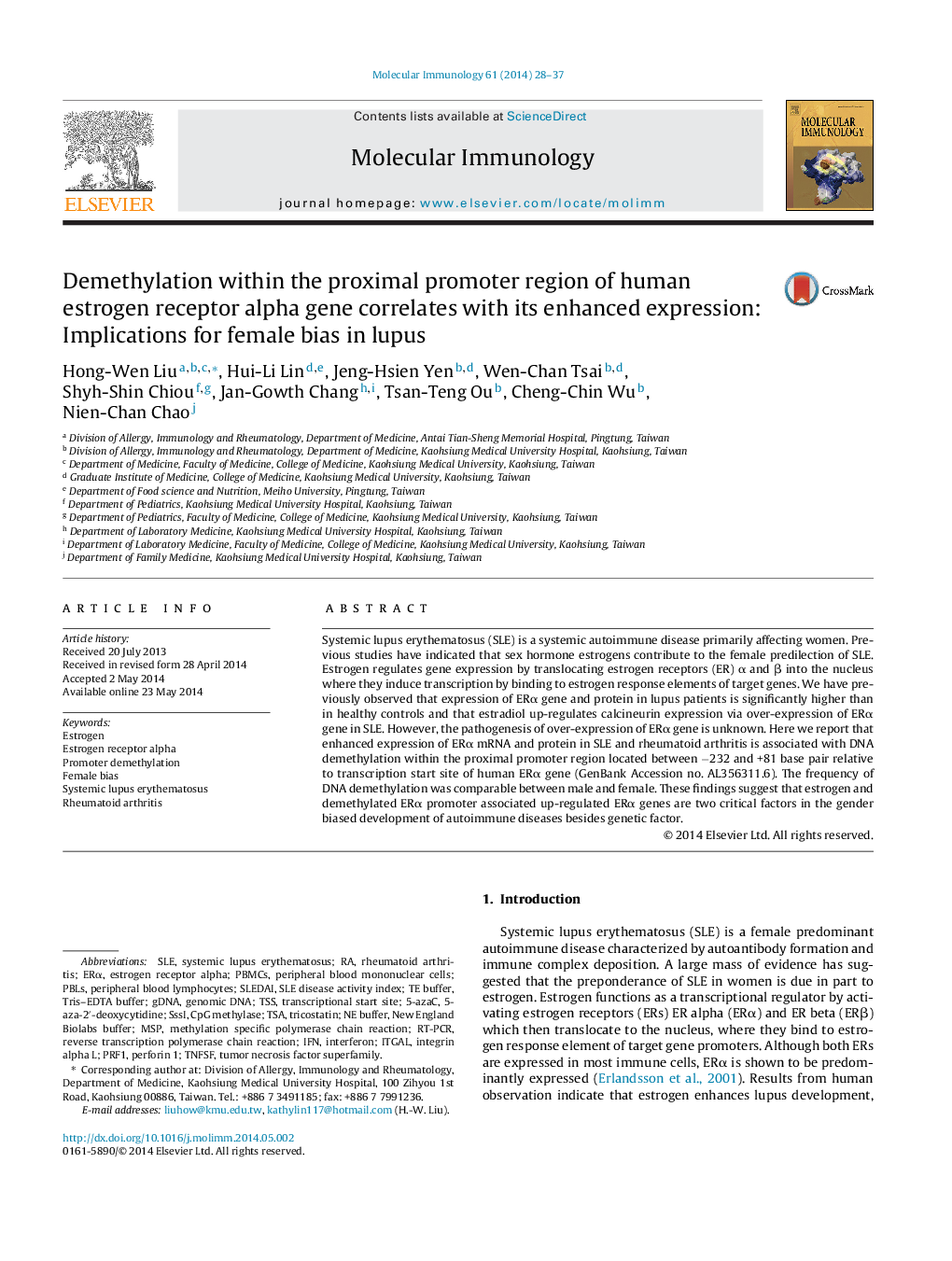| Article ID | Journal | Published Year | Pages | File Type |
|---|---|---|---|---|
| 2830617 | Molecular Immunology | 2014 | 10 Pages |
•ERα promoter unmethylation occurred more frequently in SLE and RA than in controls.•No significant differences in frequence of unmethylation between male and female.•Unmethylation was associated with increased expression of ERα gene.•Up-regulated ERα gene via mediating estrogen induced excess methylation sensitive genes.
Systemic lupus erythematosus (SLE) is a systemic autoimmune disease primarily affecting women. Previous studies have indicated that sex hormone estrogens contribute to the female predilection of SLE. Estrogen regulates gene expression by translocating estrogen receptors (ER) α and β into the nucleus where they induce transcription by binding to estrogen response elements of target genes. We have previously observed that expression of ERα gene and protein in lupus patients is significantly higher than in healthy controls and that estradiol up-regulates calcineurin expression via over-expression of ERα gene in SLE. However, the pathogenesis of over-expression of ERα gene is unknown. Here we report that enhanced expression of ERα mRNA and protein in SLE and rheumatoid arthritis is associated with DNA demethylation within the proximal promoter region located between −232 and +81 base pair relative to transcription start site of human ERα gene (GenBank Accession no. AL356311.6). The frequency of DNA demethylation was comparable between male and female. These findings suggest that estrogen and demethylated ERα promoter associated up-regulated ERα genes are two critical factors in the gender biased development of autoimmune diseases besides genetic factor.
Graphical abstractA proposed model for the roles of the human ERα in sex bias in SLE.Figure optionsDownload full-size imageDownload as PowerPoint slide
